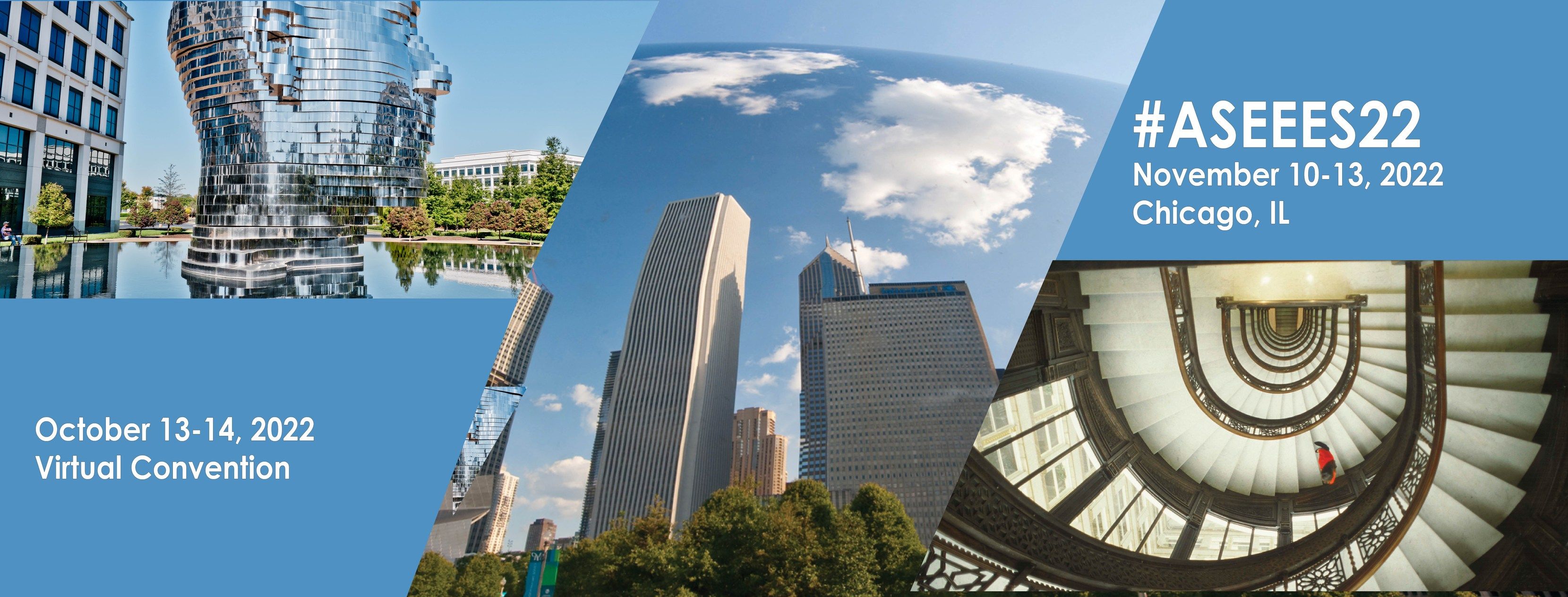The 54th ASEEES Annual Convention was held virtually between October 13-14 and in-person between November 10 and 13, 2022 in Chicago, IL, at the Palmer House Hilton with the participation of our colleagues: Tamás Scheibner, Miklós Mitrovits, Balázs Ablonczy and László Borhi.

As the premier membership organization in the world with over 3,200 members, ASEEES supports teaching, research, and publication relating to the study of the region and has cultivated the field’s intellectual landscape for over fifty years through its chief publication, Slavic Review, its Annual Convention, its book prizes, and its organizational newsletter. Slavic Review is the leading peer-reviewed scholarly journal in the field, featuring significant articles of original research from diverse disciplinary approaches.
ASEEES also maintains the intellectual vitality of the field by hosting an Annual Convention – an international forum wherein over 2,500 attendees (scholars, professionals, and graduate students—domestic and international) exchange new research and information face-to-face on an annual basis.
Programs of our colleagues:
Tamás Scheibner: Workers' Charity and Elite Refugee Aid: British Society in Humanitarian Action after the 1956 Hungarian Revolution
Thu, November 10, 3:15 to 5:00pm CST (Thu, November 10, 10:15pm to Fri, November 11, 12:00am CET), The Palmer House Hilton, Floor: 7th Floor, Sandburg 6
The dominant trends in the historiography of the post-1956 refugee crisis either focus on the activities of governments and large international organizations, or, based on recollections, present the refugees' perspective specifically. To complement these approaches, this presentation will instead seek to understand how different layers of a society -- in this case, British society -- responded to the arrival of refugees. Focusing on the one hand on aid agencies with a typically elite recruitment base and individuals from intellectual and noble backgrounds who promoted refugee aid, and on the other hand on workers and opinion leaders involved in the trade union movement, the paper will show how different strategies and conflicts shaped social responses.
Roundtable: Digital Advocacy: Aggregation and Networking for Displaced Scholars
Chair: Tamás Scheibner
Sun, November 13, 12:00 to 1:45pm CST (7:00 to 8:45pm CET), The Palmer House Hilton, Floor: 7th Floor, Clark 9
This roundtable will look at the ad hoc solutions that appeared in February and March 2022 to the challenge of immediate and efficient aggregation and distribution of information to help displaced academics, cultural workers, and other scholars. Roundtablists represent different approaches to this issue, and will compare best practices and pitfalls of on-the-fly organizing efforts. The goal of the roundtable is not to present research, or even to debate the many vital political and social issues that emerged from the Russian war on Ukraine, but rather to reflect on what we can learn from grass roots efforts to help friends and colleagues, and how we could do this better in the future.
Miklós Mitrovits: Relations between the Hungarian Government and the Polish Government-in-exile, 1939-1944
Fri, November 11, 8:00 to 9:45am CST (3:00 to 4:45pm CET), The Palmer House Hilton, Floor: 7th Floor, Sandburg 6
Despite the German-Polish war, the Polish embassy in Budapest remained in operation until January 1941, so there was an official relation between the Polish government-in-exile in London and the Hungarian government in Budapest. On the other hand, the Citizens' Committee, which was responsible for the life of Polish refugees in Hungary, was also recognised by the government-in-exile as its official representation. The Polish government operated a courier service through Hungary and used Hungarian state infrastructures to connect with the occupied territories. There may also have been secret military bases of the Polish Home Army in Hungary. In return, the Hungarian government sought to use Polish diplomacy as an intermediary with the Entente.
Balazs Ablonczy’s book discussion: "Go East! A History of Hungarian Turanism,"
Fri, November 11, 2:00 to 3:45pm CST (9:00 to 10:45pm CET), The Palmer House Hilton, Floor: 7th Floor, Sandburg 8
Brief Description
For more than two centuries, Hungarians believed they shared an ethnic link with people of Japanese, Bulgarian, Estonian, Finnish, and Turkic descent. Known as "Turanism," this ideology impacts Hungarian politics, science, and cultural and ethnic identity even today. In Go East!: A History of Hungarian Turanism, Balázs Ablonczy examines the rise of Hungarian Turanism and its lasting effect on the country's history. The roundtable will also discuss the relationship between Central Europe, the Balkans and the Ottoman Empire and Central Asia, and will also discuss the Orientalism of the Central European nations.
Chair: Laszlo Borhi, Hungarian Academy of Sciences (Hungary) / Indiana U



